As a Golden Retriever owner, recognizing the signs of cancer in dogs can be one of the most important skills you’ll ever develop. Cancer affects approximately one in four dogs, with Golden Retrievers being particularly susceptible to certain types due to their genetic predisposition. Understanding dog cancer symptoms early can make the difference between successful treatment and a devastating outcome.
This comprehensive guide will help you identify the warning signs, understand what to look for, and know when immediate veterinary attention is crucial for your Golden Retriever’s health and wellbeing.
Contents
- 1 Understanding Cancer in Golden Retrievers
- 2 Physical Signs and Changes to Monitor
- 3 Behavioral and Energy Changes
- 4 Respiratory and Circulation Warning Signs
- 5 Digestive System Indicators
- 6 Neurological and Mobility Changes
- 7 Skin and Coat Changes
- 8 Age-Related Considerations
- 9 When to Seek Immediate Veterinary Care
- 10 Prevention and Early Detection Strategies
- 11 Living with a Cancer Diagnosis
- 11.1 Understanding Treatment Options
- 11.2 Supporting Quality of Life
- 11.3 What are the most common signs of cancer in dogs?
- 11.4 How quickly can dog cancer symptoms develop?
- 11.5 Can dogs hide cancer symptoms?
- 11.6 At what age should I be most concerned about cancer in my Golden Retriever?
- 11.7 Are there specific types of cancer more common in Golden Retrievers?
- 11.8 Should I be worried about every lump I find on my Golden Retriever?
- 11.9 How often should I check my Golden Retriever for signs of cancer?
- 11.10 Can environmental factors contribute to cancer in Golden Retrievers?
- 12 Final Thoughts
Understanding Cancer in Golden Retrievers
Golden Retrievers face a higher cancer risk than many other breeds, with studies showing that approximately 60% of Golden Retrievers will develop cancer during their lifetime. The most common types affecting this breed include hemangiosarcoma, lymphoma, osteosarcoma, and mast cell tumors.
Dogs and cancer have a complex relationship that’s influenced by genetics, environment, age, and lifestyle factors. Golden Retrievers’ genetic predisposition means that early detection becomes even more critical for this beloved breed.
The signs and symptoms of cancer in dogs can vary significantly depending on the type and location of the cancer. Some symptoms appear gradually over weeks or months, while others may develop suddenly and require immediate attention.
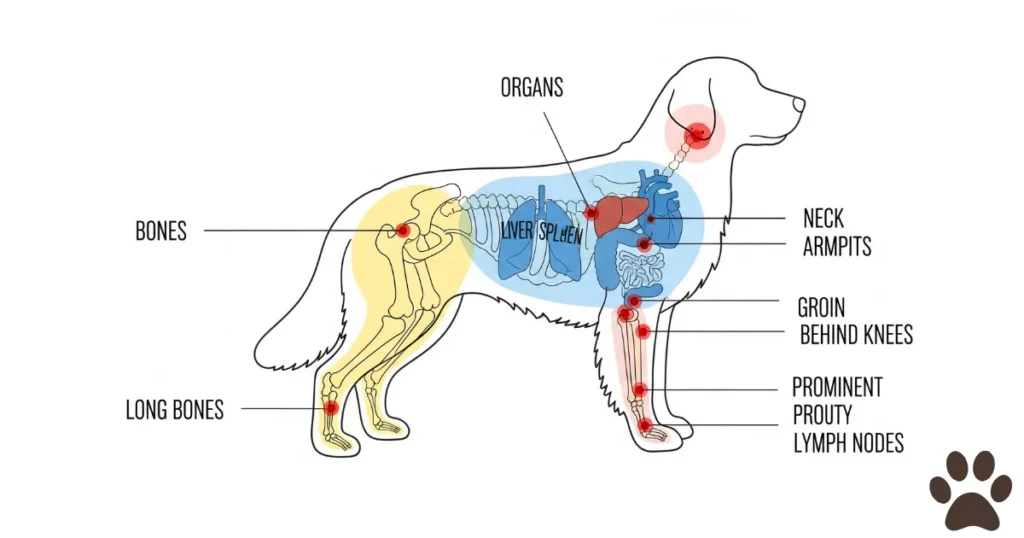
Physical Signs and Changes to Monitor
Lumps, Bumps, and Swellings
One of the most noticeable signs of cancer in dogs is the appearance of unusual lumps or bumps on your Golden Retriever’s body. While not all lumps are cancerous, any new growth deserves veterinary attention.
Check your Golden Retriever regularly by:
- Running your hands over their entire body during grooming sessions.
- Paying special attention to areas where lymph nodes are located (neck, armpits, groin).
- Monitoring any existing lumps for changes in size, texture, or mobility.
- Looking for swelling that doesn’t have an obvious cause.
Changes in Eating and Drinking Habits
Dog cancer symptoms often include significant changes in appetite and water consumption. Golden Retrievers are typically enthusiastic eaters, so any deviation from normal eating patterns should raise concern.
Warning signs include:
- Complete loss of appetite lasting more than 24 hours.
- Eating significantly less than usual for several days.
- Difficulty chewing or swallowing.
- Excessive thirst or urination.
- Sudden food aversions.

Weight Loss and Muscle Wasting
Unexplained weight loss is one of the most serious signs and symptoms of cancer in dogs. Golden Retrievers with cancer may lose weight despite eating normally, or they may experience rapid muscle wasting.
Monitor your Golden Retriever’s weight by:
- Regular weigh-ins at home or during vet visits.
- Feeling for rib coverage changes during petting.
- Watching for a visible tuck-up in the abdomen.
- Noting any loss of muscle mass, especially in the hindquarters.
Behavioral and Energy Changes
Decreased Activity and Lethargy
Golden Retrievers are naturally active and energetic dogs. Wen dogs and cancer intersect, one of the first noticeable changes is often a significant decrease in energy levels and interest in activities they once enjoyed.
Signs to watch for:
- Reluctance to go on walks or play fetch.
- Sleeping more than usual.
- Lack of enthusiasm for favorite activities.
- Difficulty getting up from lying positions.
- General weakness or fatigue.

Changes in Social Behavior
Cancer can affect your Golden Retriever’s personality and social interactions. These dog cancer symptoms may be subtle but are often the first things observant owners notice.
Behavioral changes might include:
- Seeking more solitude than usual.
- Becoming less responsive to calls or commands.
- Changes in interaction with family members or other pets.
- Increased irritability or sensitivity to touch.
- Withdrawal from normal social situations.
Respiratory and Circulation Warning Signs
Breathing Difficulties
Respiratory changes can indicate various types of cancer, particularly lung cancer or tumors pressing on airways. Signs of cancer in dogs related to breathing require immediate veterinary attention.
Watch for:
- Labored or rapid breathing at rest.
- Persistent coughing without obvious cause.
- Wheezing or unusual breathing sounds.
- Blue or pale gums.
- Difficulty exercising due to breathing problems.

Circulatory System Changes
The circulatory system can be significantly affected by certain cancers common in Golden Retrievers, particularly hemangiosarcoma, which affects blood vessels.
Important signs include:
- Pale or white gums.
- Weakness or collapse episodes.
- Rapid heart rate.
- Cold extremities.
- Difficulty with normal activities.
Digestive System Indicators
Gastrointestinal Disturbances
Dog cancer symptoms frequently involve the digestive system, especially with abdominal cancers or when treatments affect digestion.
Common digestive signs include:
- Persistent vomiting or nausea.
- Chronic diarrhea or constipation.
- Blood in vomit or stool.
- Excessive drooling.
- Difficulty swallowing.
- Abdominal swelling or distension.
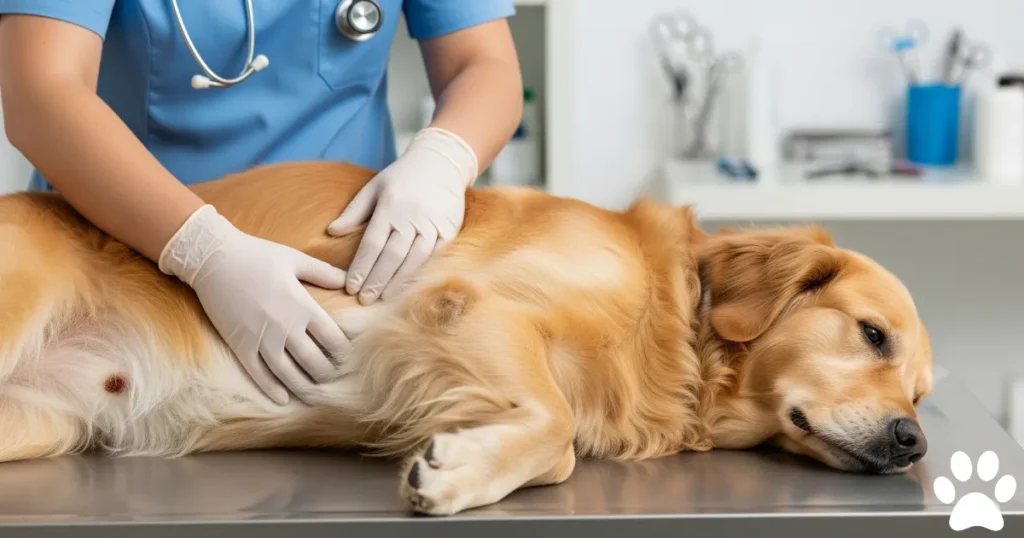
Changes in Elimination Patterns
Monitor your Golden Retriever’s bathroom habits closely, as changes can indicate various types of cancer affecting internal organs.
Signs to note:
- Straining to urinate or defecate.
- Changes in urine color or odor.
- Increased or decreased frequency of elimination.
- Accidents in house-trained dogs.
- Blood in urine or stool.
Neurological and Mobility Changes
Movement and Coordination Issues
Signs and symptoms of cancer in dogs can include neurological changes, particularly with brain tumors or bone cancers that affect mobility.
Neurological warning signs:
- Loss of coordination or balance.
- Seizures or tremors.
- Changes in gait or limping.
- Difficulty navigating stairs or familiar spaces.
- Head tilting or circling behaviors.
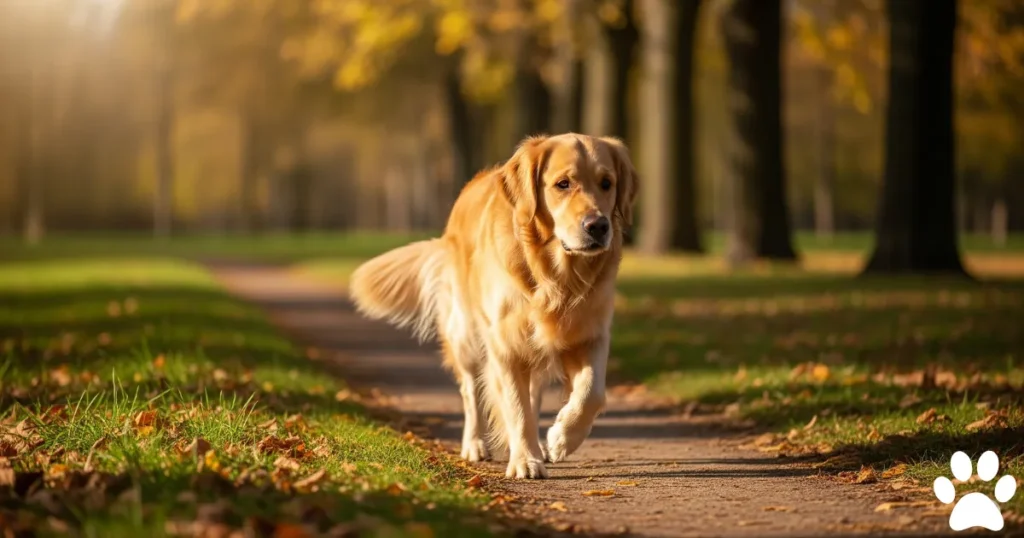
Skin and Coat Changes
Dermatological Warning Signs
The skin is often a window into your Golden Retriever’s overall health. Dogs and cancer frequently present with skin-related symptoms that observant owners can detect early.
- Skin changes to monitor:
- Non-healing wounds or sores.
- Unusual odors from the skin.
- Changes in coat quality or texture.
- Excessive scratching or licking at specific areas.
- Discoloration of the skin or coat.
- Hair loss in patches.
Age-Related Considerations
Senior Golden Retriever Cancer Risk
Golden Retrievers aged 7 and older face increased cancer risks. Dog cancer symptoms in senior dogs may be mistaken for normal aging, making vigilant observation crucial.
Age-specific considerations:
- Regular geriatric health screenings.
- More frequent at-home health checks.
- Understanding that multiple symptoms may develop simultaneously.
- Recognizing that some symptoms may progress more rapidly in older dogs.
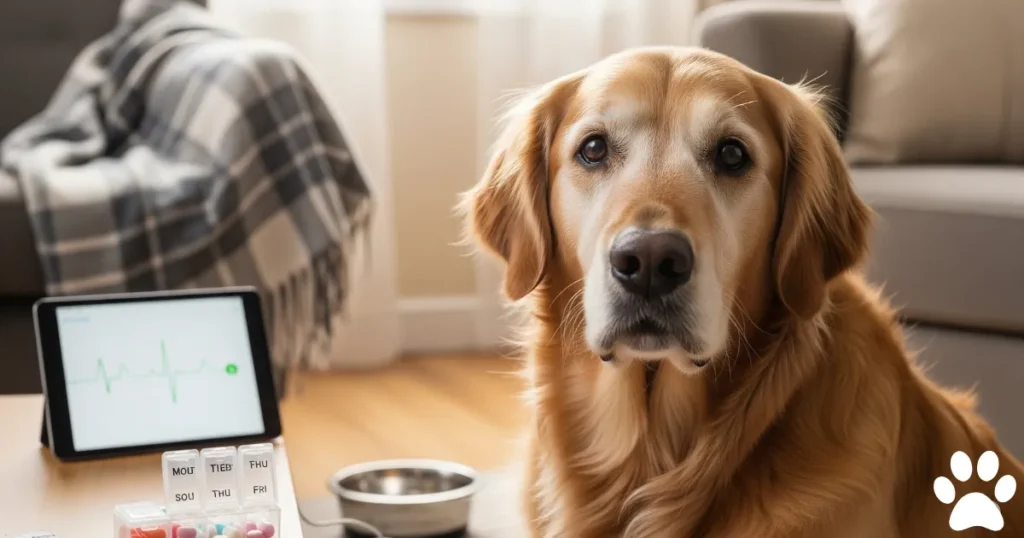
When to Seek Immediate Veterinary Care
Emergency Warning Signs
Certain signs of cancer in dogs require immediate veterinary attention, regardless of the time of day or day of the week.
Seek emergency care for:
- Sudden collapse or weakness.
- Difficulty breathing or blue gums.
- Seizures or neurological episodes.
- Severe abdominal distension.
- Persistent vomiting or inability to keep water down.
- Signs of severe pain or distress.
Scheduling Routine Evaluations
Even non-emergency dog cancer symptoms warrant prompt veterinary evaluation. Don’t wait for symptoms to worsen before seeking professional assessment.
Schedule appointments for:
- Any new lumps or bumps.
- Persistent changes in appetite or behavior.
- Gradual weight loss.
- Changes in elimination patterns.
- Any combination of concerning symptoms.
Prevention and Early Detection Strategies
Regular Health Monitoring at Home
Proactive monitoring is your best defense against missing early signs and symptoms of cancer in dogs. Establish routine health checks as part of your regular care.
Weekly health checks should include:
- Full-body palpation for lumps or swellings.
- Examination of gums, teeth, and mouth.
- Checking eyes, ears, and nose for discharge.
- Monitoring appetite, energy, and behavior patterns.
- Weighing your Golden Retriever regularly.

Professional Veterinary Care
Regular veterinary examinations are crucial for early cancer detection in Golden Retrievers. Your veterinarian can detect subtle changes that might escape even the most observant owner.
Recommended veterinary care includes:
- Annual wellness exams for younger dogs.
- Bi-annual exams for senior Golden Retrievers.
- Prompt evaluation of any concerning symptoms.
- Discussion of breed-specific cancer risks.
- Regular blood work to monitor internal health.
Living with a Cancer Diagnosis
Understanding Treatment Options
If your Golden Retriever receives a cancer diagnosis, understanding treatment options can help you make informed decisions about their care.
Common treatment approaches include:
- Surgical removal when appropriate.
- Chemotherapy protocols designed for dogs.
- Radiation therapy for specific cancer types.
- Palliative care for comfort and quality of life.
- Integrative approaches combining conventional and supportive care.
Supporting Quality of Life
Maintaining your Golden Retriever’s quality of life during cancer treatment is paramount. Focus on comfort, nutrition, and emotional wellbeing throughout the journey.
Quality of life considerations:
- Pain management strategies.
- Nutritional support and appetite stimulation.
- Maintaining comfortable living environments.
- Continuing gentle exercise as tolerated.
- Providing emotional support and companionship.
What are the most common signs of cancer in dogs?
The most common signs of cancer in dogs include unexplained lumps or bumps, sudden weight loss, changes in appetite, decreased energy levels, difficulty breathing, and persistent digestive issues. Golden Retrievers may also show changes in behavior, mobility issues, and skin abnormalities.
How quickly can dog cancer symptoms develop?
Dog cancer symptoms can develop gradually over months or appear suddenly within days. Some cancers, like hemangiosarcoma, can cause rapid symptom onset, while others may progress slowly with subtle early signs. This is why regular monitoring is so important for Golden Retrievers.
Can dogs hide cancer symptoms?
Yes, dogs naturally tend to hide signs of illness, including dog cancer symptoms. Golden Retrievers may continue normal activities despite feeling unwell. This instinctive behavior makes careful observation by owners crucial for early detection of signs and symptoms of cancer in dogs.
At what age should I be most concerned about cancer in my Golden Retriever?
While cancer can occur at any age, Golden Retrievers face increased risk after age 7. However, dogs and cancer can affect younger dogs too. Regular health monitoring should begin early and increase in frequency as your Golden Retriever ages.
Are there specific types of cancer more common in Golden Retrievers?
Yes, Golden Retrievers are predisposed to hemangiosarcoma, lymphoma, osteosarcoma, and mast cell tumors. Understanding these breed-specific risks helps owners recognize relevant signs of cancer in dogs more effectively.
Should I be worried about every lump I find on my Golden Retriever?
While not every lump indicates cancer, all new growths should be evaluated by a veterinarian. Many dog cancer symptoms start as small, seemingly harmless lumps. Early evaluation allows for prompt treatment if cancer is present and peace of mind if it’s benign.
How often should I check my Golden Retriever for signs of cancer?
Perform basic health checks weekly, including feeling for lumps and monitoring behavior changes. Professional veterinary examinations should occur annually for younger dogs and bi-annually for senior Golden Retrievers to catch signs and symptoms of cancer in dogs early.
Can environmental factors contribute to cancer in Golden Retrievers?
Environmental factors may play a role in cancer development, though genetics remain the primary risk factor for Golden Retrievers. Maintaining a healthy lifestyle, providing good nutrition, avoiding known carcinogens, and ensuring regular veterinary care can support overall health and potentially reduce dogs and cancer risks.
Final Thoughts
Recognizing the signs of cancer in dogs, particularly in Golden Retrievers, requires vigilance, knowledge, and prompt action. While this breed faces higher cancer risks due to genetic predisposition, early detection significantly improves treatment outcomes and quality of life.
Remember that dog cancer symptoms can be subtle in early stages, making regular health monitoring essential. Trust your instincts as a Golden Retriever owner– you know your dog better than anyone. When in doubt, consult with your veterinarian promptly.
Dogs and cancer don’t have to mean a hopeless prognosis. With awareness of signs and symptoms of cancer in dogs, regular veterinary care, and prompt treatment when needed, many Golden Retrievers can maintain good quality of life even after a cancer diagnosis. Stay informed, stay vigilant, and cherish every moment with your beloved Golden Retriever. Early detection saves lives, and your attention to these warning signs could make all the difference in your companion’s health and happiness.
Dr. Nabeel A.
Hi, I’m Dr. Nabeel Akram – a farm management professional by trade and a passionate Golden Retriever enthusiast at heart. With years of experience in animal science and livestock care, I’ve built a career around understanding animals—how they live, thrive, and bring value to our lives. This blog is a personal project born from that same passion, focusing on one of the most loyal and lovable breeds out there: the Golden Retriever. Whether I’m managing farm operations or sharing insights on canine health, behavior, and care, it all ties back to one core belief—animals deserve thoughtful, informed, and compassionate attention. Welcome to a space where professional expertise meets genuine love for dogs.
Facebook |
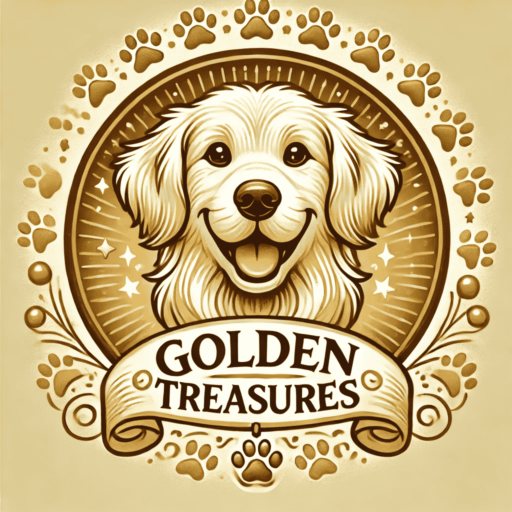
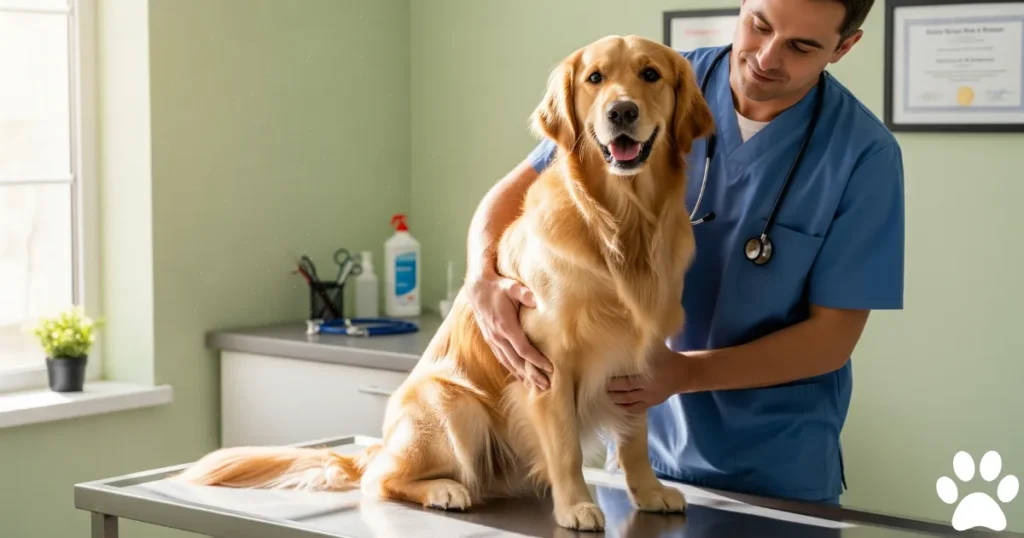
Links will be automatically removed from comments.